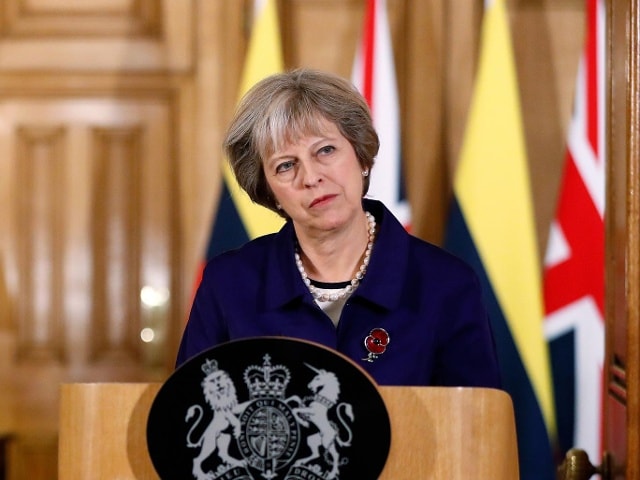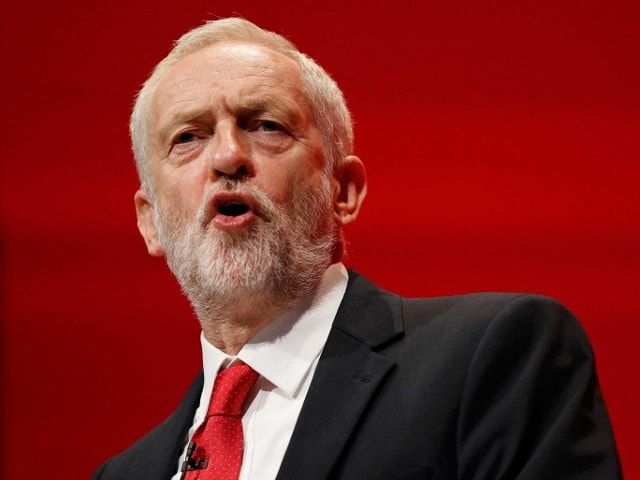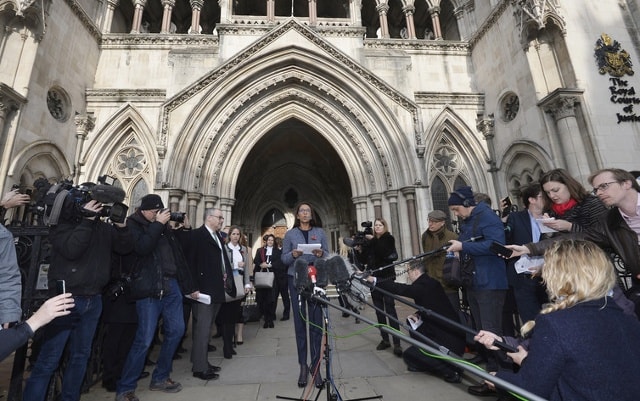Britain is in turmoil again because of Brexit
(Baonghean) - On November 6, British Prime Minister Theresa May warned members of parliament not to obstruct the process of taking Britain out of the European Union (Brexit), and announced that she would still activate Article 50 of the Lisbon Treaty at the end of March 2017 as planned.
But according to analysts, when the UK has yet to agree on the legal process for Brexit, Theresa May's plan is likely to be disrupted.
Conflict at the top
The UK High Court has ruled that the UK government cannot automatically trigger Article 50 of the Lisbon Treaty to formally leave the EU, but needs the approval of Parliament. This ruling has led to an unprecedented confrontation as the UK government announced it would appeal.
Brexit Minister David Davis once emphasized that the Brexit vote of 17.4 million British people "has given the British Government the greatest responsibility in history" to carry out the people's wishes, and this is the basis for the British Government to appeal the High Court's November 3 ruling.
For this reason, Mrs. May said that the British people had made a decisive choice in the referendum, so the government must be responsible for taking Britain out of the EU. "Implementing the will of the people" was also the phrase Mrs. May used on November 6 to call on the British Parliament not to hinder the government's Brexit implementation process.
Mrs. Theresa May did not forget to reiterate that it was the Parliament that voted to let the people decide for themselves the UK's membership in the EU, so MPs "even if they regret the result of the referendum, they need to respect their own decision."
 |  |
| Theresa May and opposition leader Jeremy Corbyn. Photo: Reuters |
However, the judges stressed that the bill passed by Parliament clearly stated that the referendum result was only for reference and not mandatory. Therefore, it is entirely possible that Parliament will not pass the Brexit plan.
When the Government decides to appeal the High Court’s ruling, the Supreme Court will take up the case. The Supreme Court is expected to consider the case on December 7 and 8 to make a final decision.
While waiting for the Supreme Court's decision, British Prime Minister Theresa May remains steadfast in her plan to trigger Article 50 of the Lisbon Treaty at the end of March 2017.
"Trick" of the opposition?
The High Court ruling is considered one of the most influential in the UK in decades. If the British Government does not win the case at the Supreme Court in early December, the Brexit process will be delayed with a series of procedures and barriers in Parliament.
In theory, the British Parliament has every right to block Brexit, especially when the majority of British MPs voted to stay in the EU in the referendum in June.
Public opinion has more reason to worry about the intervention of the Brexit opposition when Labour Party leader Jeremy Corbyn - one of the strongest Brexit opponents - has always urged the government to "present the terms of the agreement to Parliament immediately", emphasizing that, "everything must be done transparently and reliably before Parliament on the terms of Brexit".
 |
| A High Court representative announced that the British Government may appeal to the Supreme Court. Photo: Independent |
But analysts say that even if the government fails to appeal and the right to trigger Article 50, the Lisbon Treaty, is handed to Parliament, it is unlikely that Parliament will reject the people's choice. The hurdles in Parliament are not intended to stop the Brexit process, but to create an opportunity for Brexit opponents to pressure Theresa May into a more flexible Brexit negotiation plan.
Jeremy Corbyn's interview with the Sunday Mirror made this clear: "I would support triggering Article 50 if Mrs. May agreed to negotiate for Britain to have access to the European single market and ensure that British people still have job opportunities in European countries after Brexit. This must be the most basic foundation of Mrs. May's negotiations."
Previously, although she had not revealed details of the negotiation content, Theresa May showed a rather tough stance on border control and immigration control, in return for an equally tough attitude from the EU that the UK would only have access to the common market if it accepted liberal principles, including free movement of labor.
Although Britain has considered the option of continuing to maintain a large contribution to the EU budget to "buy" access to the European common market, the EU has shown no signs of accepting this proposal from Britain.
In the worst case scenario that the British Parliament fails to pass the Brexit plan, Theresa May may have to hold an early general election in the hope of bringing more pro-Brexit faces into Parliament.
Although this scenario is very unlikely to happen, with the British people voting for Brexit - a scenario no one had anticipated before, and then former Prime Minister David Cameron having to sadly leave No. 10, Downing Street, no one can predict anything!
Thuy Ngoc
| RELATED NEWS |
|---|




